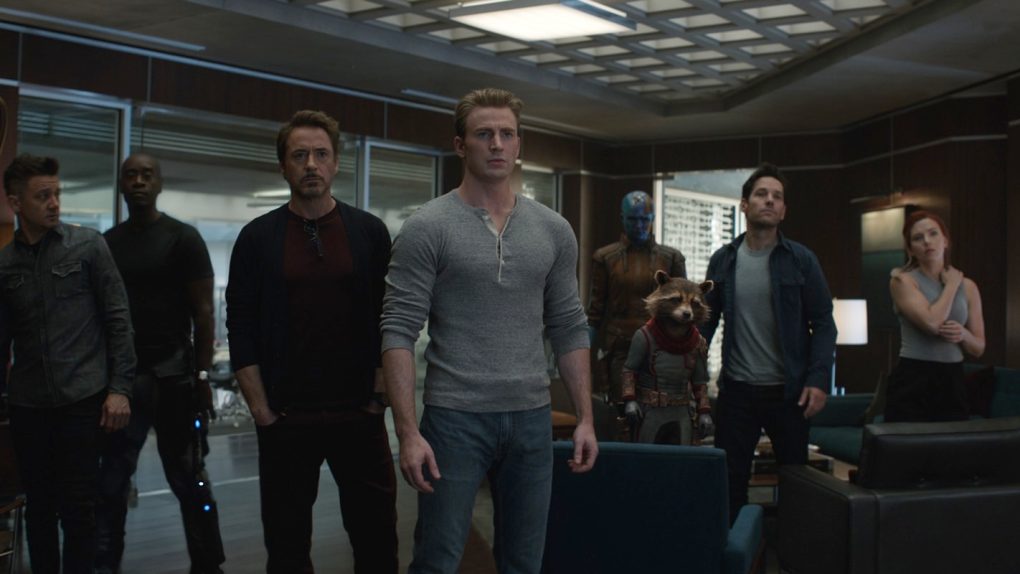April 26th is the official Avengers: Endgame launch date, a film that will deliver a conclusion to the first three phases of Marvel’s Cinematic Universe — well, Spider-Man: Far From Home is technically the last film of Phase 3, but Endgame is more like a finale. We’ve warned you multiple times in the past that Endgame will be as controversial as previous MCU movies made by the Russo brothers, and the list includes The Winter Soldier, Civil War, and Infinity War. Not to mention that the most recent leaks revealed several details about the film’s controversial plot points, which weren’t necessarily appreciated by some fans. Now that the film is out, we’re about to talk about the most controversial ‘Avengers: Endgame’ plot detail so far — interestingly, it’s not what you (or I) thought it would be. Before we get to any of that, I’ll note that we’re in the endgame of Endgame spoilers right now. What’s about to follow will contain massive spoilers, the kind you should avoid at all costs.
Here’s one more warning that massive spoilers are about to follow, and a reminder that you should absolutely not go forward with the article until you’ve seen the full movie. It’s a massive accomplishment from Marvel — this is our spoiler-free review — and a must-see for Marvel fans.
https://twitter.com/Russo_Brothers/status/1118219449570455552
Others will maybe warn you only once or twice that spoilers are about to follow, but not us. Considering how amazing Avengers 4 is, we’ll go the extra mile and remind you that you can avoid spoilers and that you should not spread them. We’ll do it with the help of Marvel’s latest Endgame promo video that talks about… spoilers:
If you’re here, it means you’ve already seen Endgame, and have questions about what you just saw. There are several things that you might not appreciate, especially when it comes to the way Kevin Feige (Marvel president), Joe and Anthony Russo (directors), and Christopher Markus and Stephen McFeely (writers) handled the character arcs for Iron Man, Captain America, Thor, and Black Widow. But neither of those are the most controversial elements of the plot — they all make plenty of sense, and we will discuss them in the future.
Part One: The Hulk explanation
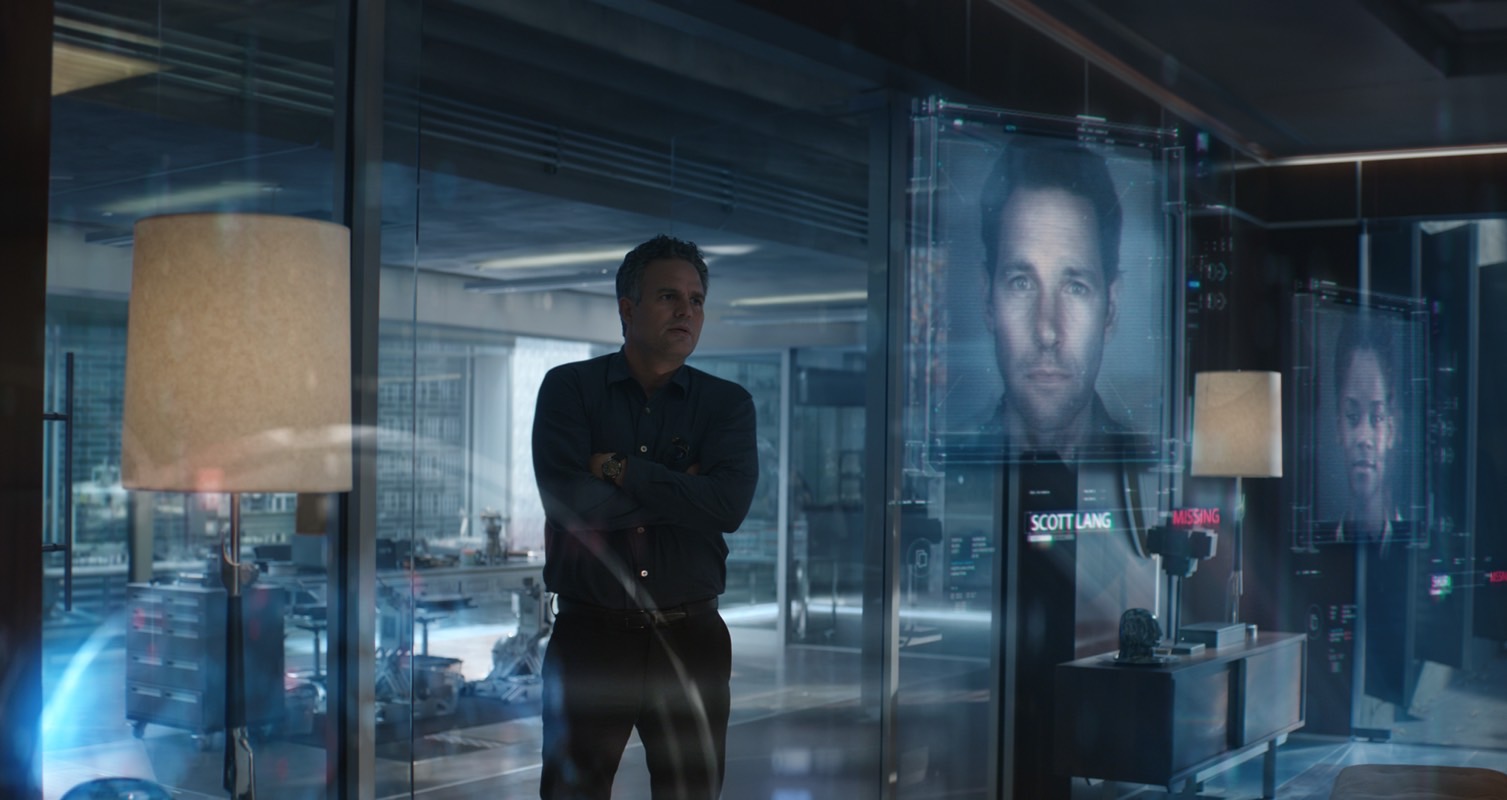
The one plot element that plays a massive role in the development of those arcs is time travel. Or better said, the way Marvel handles time travel. I’d venture out to say that it’s a brilliant way to do it, but it also has at least a huge glaring hole in it.
While the movie doesn’t get overly scientific about time travel — something that so far nobody was able to pull off in the real world — it does shatter everything that we were trained to think and accept, about time travel.
Professor Hulk’s discussion with Rhodey, Scott Lang, Clint, and Nebula is very revealing. With a couple of lines, Hulk, seconded by Nebula, perfectly explains that everyone’s wrong to think that changing the past will change the future, in Back to the Future style:
Time doesn’t work that way, changing the past doesn’t change the future.
I don’t know why everyone believes that [about Rhodey’s excellent recall of time travel movies], but it isn’t true, think about it, if you travel to the past, that past becomes your future and your former present becomes the past, which can’t now be changed by your new future!
To get back to Rhodey and Scott, it turns out that War Machine is a huge time travel buff, as the two of them list a bunch of movies that handle time travel the wrong way, including Star Trek, Terminator, Time Cop, Time After Time, Quantum Leap, A Wrinkle in Time, Somewhere In Time, Hot Tub Time Machine, Bill and Ted’s Excellent Adventure.
Part Two: The Ancient One
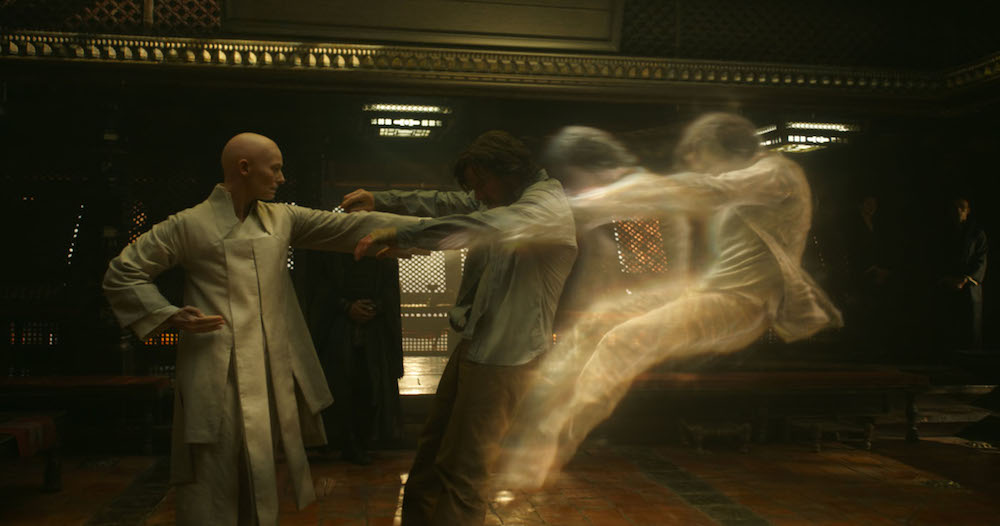
So we’ve just established that you can’t go back in time and expect to change the future. But what you do in the past does have an immediate effect on the future in that timeline. The main MCU-timeline is fine, as long as you don’t make any significant changes to it.
The Ancient One makes a great point about that by explaining how the absence of a significant element like the Time Stone would create an additional timeline, aside from the MCU-timeline that already happened, that could end up in total disaster for her reality. Practically, The Ancient One tells us that each wrinkle in time would create additional timelines of events, a multiverse that the MCU Avengers can’t control:
If I give up the time stone to help your reality, I’m dooming my own. […]
The infinity stones create what you experience as the flow of time. Remove one of the Stones, and that flow splits, now this may benefit your reality, but my new one, not so much. In this new branch reality, without our chief weapon against the forces of darkness, our world will be overrun, millions would suffer. So tell me, doctor, can your science prevent all that?
Hulk offers to return the Time Stones, and practically all the other Infinity Stones, to the periods the Avengers take them from, in order not to create a chaotic chain of events in said timeline.
But what The Ancient One really tells us is that each alteration of the past would spark a new timeline. Couple that with what Hulk told us, and you end up with the definition of time travel in the MCU. You can’t change any events in the past to fix your future, and any changes that you make in the past will immediately create a new timeline that could unfold in different, unexpected ways compared to your own timeline.
The secret sauce
There’s also an important detail to note. To work, the Tony Stark time travel / Quantum Realm machine needs three critical components, including the special protection suits, the time-and-space GPS they wear on their wrists, and the Pym particles that power trips through time.
Endgame timelines explained
With all that in mind, let’s look at all the timelines that exist in Endgame, following the nearly three-hour-long adventure that you just saw.
1. The main timeline
This is where the action happens, and it’s the timeline we end up with at the end of Endgame, the MCU-timeline.

2. 1970
We have a few potential timelines here, and I’ll split them accordingly:
- 1970a: where they don’t return the Tesseract/Space Stone, which could cause catastrophic events
- 1970b: Howard Stark becomes a better father after his talk to Howard Potts and Iron Man never happens
- 1970c: Hank Pym notices that Pym particles were stollen causing events that could further ripple.
- 1970d: This is where Steve Rogers marries with Peggy Carter (I’ll call this one the 1970-Steve-Rogers timeline.)
3. 2012
Loki taking the Tesseract and teleporting himself god knows where creates a totally different timeline. Whatever happens here, Loki’s ability to leave Earth differently than what really happened will alter the course of events, creating a timeline that I’ll refer to as 2012-Loki henceforth.
4. 2013
There’s also a theoretical 2013a timeline, one where Steve fails to return the Reality Stone and the Mjolnir.
Also, and there is one more minor, theoretical change. Following the talk with Fat Thor, Frigga might handle the ensuing battle with Malekith differently. She might as well survive the whole thing, and if she does, she’ll alter the ensuing events for Asgard, affecting several MCU movies. Frigga doesn’t appear to want to know anything about her future, but she’s smart enough to realize what her son is trying to warn her about. She could inadvertently change her future in spite of not wanting to do it. For the sake of the conversation, we’ll call this one 2013-Frigga, and forever forget it exists.
5. 2014
It’s clear that 2014 will get at least one, but possible more timelines or combinations, and I’ll list the obvious ones:
- 2014a: Where Steve doesn’t return the Power Stone and Soul Stone. But it’s highly unlikely for Cap not to do it.
- 2014b (2014-No-Thanos): 2014-Thanos left that universe to travel to 2023 MCU-timeline where he was dusted. Did Tony kill him, or did he just transport him and his forces to his timeline? In case Thanos is dead for good, then 2014a has no Thanos, and it’ll have no Snap. Moreover, the Guardians won’t meet similarly, and there may be no Guardians to begin with in this universe, given the Thanos threat is absent. There’s still Ronan in there, so there’s that, at least.
- 2014c: Once Quill wakes up from his War Machine-induced sleep, he might not even go for the Power Stone again, setting in place a chain of events that would also result into the early dissolution of the Guardians.
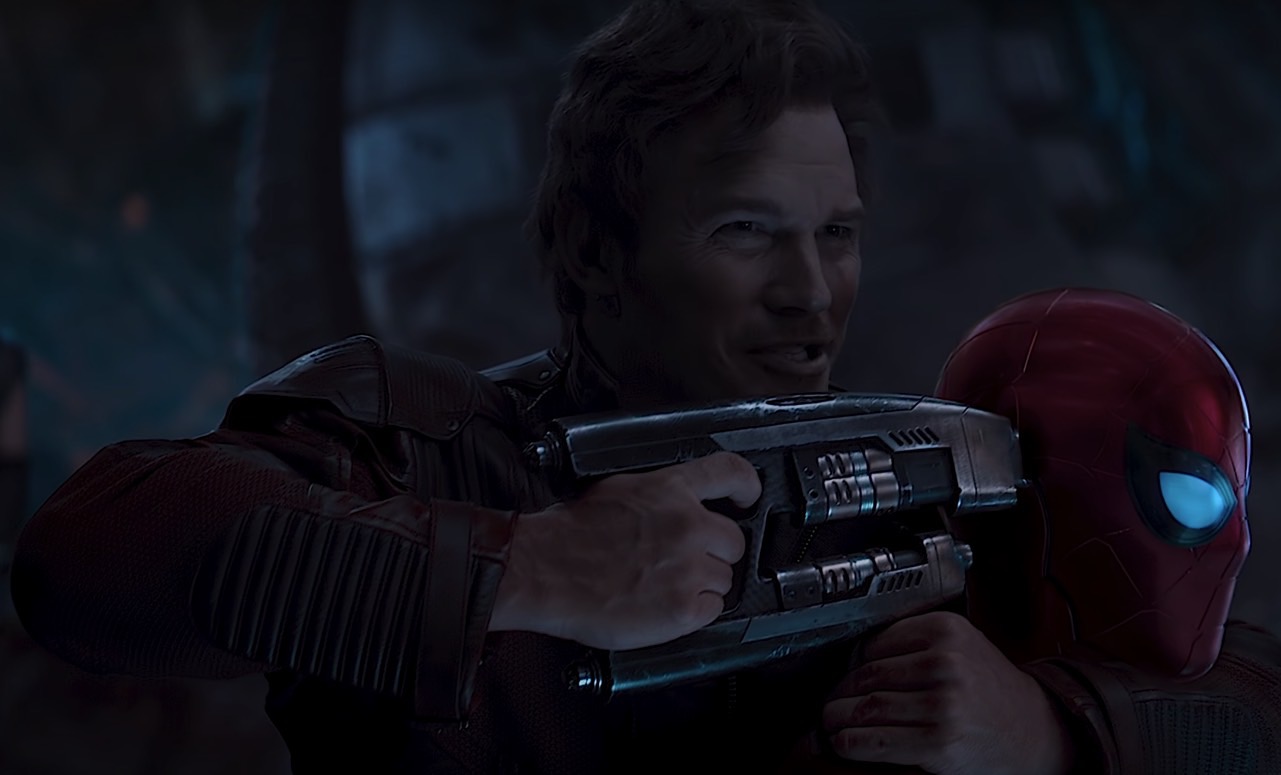
With all that in mind, we have at least two major timelines joining the MCU-timeline after Endgame, including the 2012-Loki and the 2014-No-Thanos. These two could all be explored in other MCU films and TV shows going forward.
I’ve left out the 1970-Steve-Rogers timeline on purpose (though it could be a different year where Steve marries Peggy). That’s because it’s unclear whether Steve creates a different timeline, one where his mere presence, or his Captain America activities, would create a different future, or whether he lives quietly into that timeline, and somehow the Steve-Rogers timeline would flow into the MCU timeline.
I will note that some of these new timelines could fold into the main timeline, or mix themselves in any combos to create additional timelines, depending on what else happens in them.
The major time travel plot issues

There are two major issues with time travel, and I’ve already addressed one before, Steve Roger’s timeline. Did he come to 2023 MCU-timeline from his own timeline? In which case, why didn’t he show up using the Quantum Realm machine that Hulk used to send him back in time?
Or did he live his life in the MCU-timeline, and hoped he’d be alive to return the shield in 2023 to Sam and Bucky? Marvel really needs to explain this one, because this detail is really what complicates the rules of time traveling that they’ve established earlier in the movie.
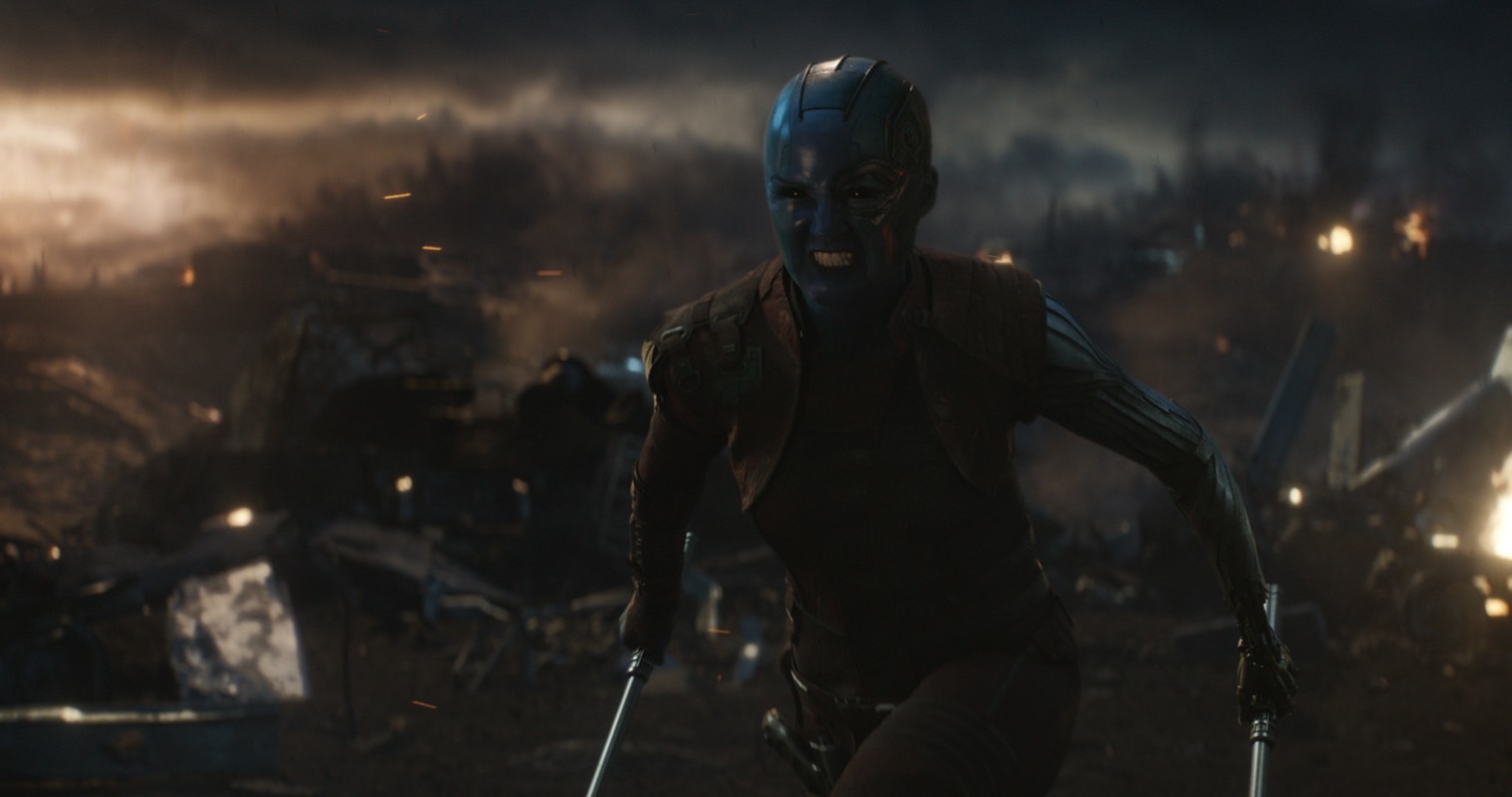
The other major issue that I haven’t really seen anyone talk about concerns the way Nebula brought Thanos and his ship to 2023.
2014-Nebula took from 2023-Nebula both the GPS and her remaining Pym particle. She needed both of them to join the Avengers back to the future before she brought in her father. That means Thanos didn’t have a GPS/Pym combo, so how could 2014-Nebula have brought 2014-Thanos to the future without those critical components?
There is one plausible explanation for this, one that Marvel doesn’t deliver but it’s easy to decipher. 2014-Thanos and 2014-Nebula have access to all the knowledge that came with 2023-Nebula. That means they can try to replicate the GPS and the Pym particles, and they have all the time in the world to do it. It’s clear that Thanos and Co. posses incredibly advanced technology so they might be able to create as many watches and Pym particles they need to get the job done. No matter how long Thanos needs to recreate Stark and Pym’s technologies, Nebula would bring them to the future of this timeline at the same point in time. It’s just that Marvel never consciously addresses this potential plot hole in Endgame.
